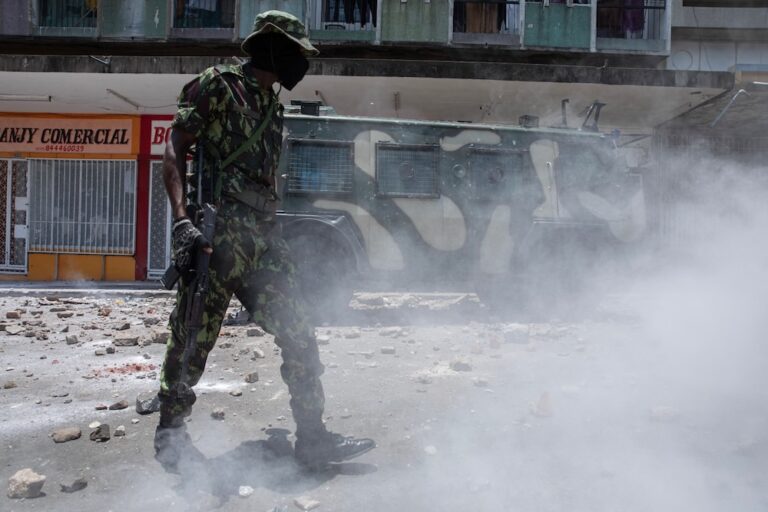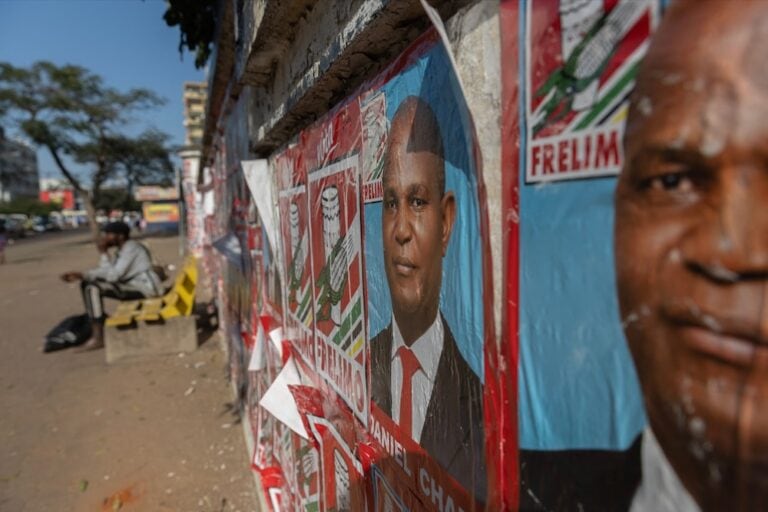While investigating alleged police extortion, journalist Omardine Omar was assaulted by officers and detained, and subsequently convicted and fined for civil disobedience.
This statement was originally published on cpj.org on 2 July 2020.
Mozambican authorities should not contest journalist Omardine Omar’s appeal and should allow him and all members of the press to work freely, the Committee to Protect Journalists said today. On June 30, the Ka Mpfumo court in Maputo, the capital, convicted Omar, a reporter for the privately owned news website Carta de Moçambique, on charges of civil disobedience, the journalist told CPJ via messaging app. A fixer and another individual who were with Omar at the time were also convicted, he told CPJ.
Judge Francisca Antonio ignored the prosecutor’s request that charges be dropped and sentenced Omar to 15 days in jail for allegedly violating the country’s COVID-19 lockdown, but then converted that sentence to a fine of 13,734 meticais (US$200), according to the journalist and an article in Carta de Moçambique. He is appealing the fine, according to Omar and his editor, Marcelo Mosse, who spoke to CPJ via messaging app.
Police detained Omar on June 25 while he was investigating a complaint about police harassment and extortion of street vendors who were evicted two weeks earlier from the city’s Estrela Vermelha market, he told CPJ.
Police held Omar at the Machava Central Prison until June 28, when he was released following his lawyer’s intervention, according to news reports and Mosse.
“Omardine Omar was detained by the very police force he was investigating for alleged corruption, and it is disturbing that the judge proceeded despite a prosecutor asking that the charges be dropped. His conviction must be reversed on appeal,” said Angela Quintal, CPJ’s Africa program coordinator. “Mozambican authorities must send an unequivocal message that wearing a uniform is not a license to abuse journalists and citizens under the guise of enforcing COVID-19 regulations.”
Omar told CPJ that he was on his way to meet a source when heavily armed police surrounded his vehicle. He told his fixer, Luis Nhampossa, to film the officers, because it was the type of conduct that the traders had complained about. Omar said he identified himself as a journalist and asked the police which emergency regulations allowed then to act in this way.
In an interview with Deutsche Welle, Omar said police took exception to the question, and he, Nhampossa, and Omar’s cousin, Joao Rachide Andre, were hit, kicked, and trampled upon, and then detained at a police station. Omar told CPJ he was beaten on the buttocks, legs, and fingers, and continues to feel pain in both legs. Nhampossa was not badly injured, while “blood had accumulated” under the skin of Andre’s thigh.
The officers did not allow Omar access to his lawyer and ordered him to delete the video that was taken when they surrounded his vehicle, he said. When he refused, the officers falsely accused him of not wearing a mask and drinking in public, he said.
Omar told CPJ that he, Nhampossa, and Andre were held in a “stinking cell, a dark cell, full of mosquitoes” until they were released on June 28.
At Monday’s summary trial, police produced two bottles and one can of beer that they alleged Omar had been drinking, Mosse said. The journalist said he was “extremely shocked” that the judge accepted the police version of events. Nhampossa and Andre were also convicted and each received the same fine he did, said Omar.
Omar told CPJ he believes the government is trying to silence him, because of his reporting about corruption, drug-trafficking, poaching, human rights violations and the conflict in the restive northern Cabo Delgado province.
Government spokesman Arsenio Henriques did not respond to request for comment via email and messaging app.
Police spokesman Orlando Mudumane did not immediately reply to a request for comment via messaging app.
In a Facebook post, Mosse described Omar as one of the boldest of Mozambique’s new generation of journalists, while Zitamar News editor, Tom Bokwer, said on Twitter that Omar was one of the country’s top reporters on the war in northern Cabo Delgado province.



